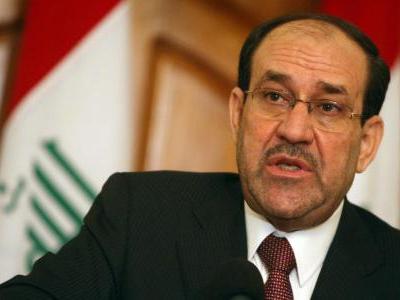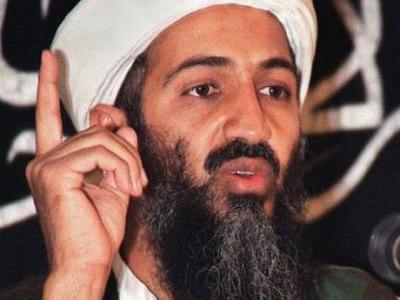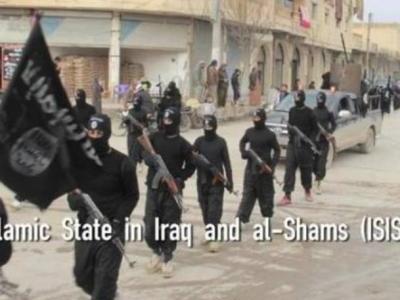Maliki’s wrong: ISIS is so rich, it doesn’t need Saudi money
Iraqi Prime Minister Nuri al-Maliki’s office released a statement Tuesday that sounded suspiciously similar to Syrian President Bashar al-Assad’s frequent Saudi-bashing comments since the Syrian uprising began.
In a statement released as Islamist militants
inched closer to Baghdad, the Iraqi cabinet said Saudi Arabia should be held responsible for militant financing and crimes committed by insurgent groups.
"We hold it [Saudi Arabia] responsible for what these groups are receiving in terms of financial and moral support," the cabinet said in a statement released by Maliki’s office. “The Saudi government should be held responsible for the dangerous crimes committed by these terrorist groups."
Consider this
statement released last week on Syrian state media: "Terrorism is spreading in front of the eyes of the western world... and alongside it are the fingers of Saudi Arabia, providing money and arms," noted the Al-Thawra daily.
Over the past three years, as the Arab Spring morphed into Islamist Fall and is now slouching toward Sectarian Winter, we’ve grown accustomed to the fault lines in the Muslim world and where the various regimes fall on this divide.
Put simply, Syria and Iraq have turned into the battleground for a
proxy war between the Shiites-Iran-Hezbollah-Assad-Maliki on one side and the Sunnis-Saudi Arabia-Turkey-Qatar-other Gulf states on the other.
Saudi Arabia of course has no love for the Shiite-Assad-Maliki camp. But accusing the Saudi government of financing ISIS (Islamic State in Iraq and Greater Syria) is taking things too far.
“There’s no evidence of that. Sure, there are informal networks operating across the Gulf, in countries like Kuwait etcetera,” said Shiraz Maher, senior fellow at the London-based International Centre for the Study of Radicalisation (ICSR). “But as for the Saudi state, it doesn’t make sense. ISIS is also a threat to the Saudi regime.”
Jihadists who hate the 'corrupt, ostentatious' Saudis
The al Sauds are no strangers to militant Islamist threats to their ancient, corrupt, often reviled dynasty.
Back in 1979, when a group of hardline Sunni militants seized the Grand Mosque – or Masjid al-Haram – in Mecca during the hajj pilgrimage, the ringleader of the attack, Juhayman al-Otaybi, noted that the al Saud dynasty had “lost its legitimacy because it was corrupt, ostentatious and had destroyed Saudi culture”.
Otaybi’s successors and jihadist brothers – from Osama bin Laden to ISIS chief Abu Bakr al-Baghdadi – have pretty much parroted the discourse over the past few decades with a few verbal tweaks.
Most experts believe funding from private charities from Gulf countries have made their way to ISIS and other Islamist rebel groups in Syria.
But that’s not state funding on a massive scale.
While Saudi Arabia is a favorite bogeyman for Maliki, Assad, and their advisors, the tiny kingdom of Kuwait has “emerged as a financing and organizational hub for charities and individuals supporting Syria’s myriad rebel group,” according to a report by the Brookings Institute’s Saban Center.
Kuwait’s relatively weak financial rules and lax enforcement have made it a perfect conduit for Islamist financing – including TV channels broadcasting hardline sectarian positions across the Arab world.
When the Saudis crack down on al Qaeda
In an interview this weekend with the Arabic TV station Al Arabiya, a Saudi interior ministry spokesman noted that, “We recognize that all terrorist-related groups are a threat, including ISIS. But our security forces are very well prepared to handle any terrorism threat.”
I wouldn’t necessarily dismiss that claim.
Back in 2004, as the US was still scrambling to trace bin Laden, the Saudis were going after the leaders of al Qaeda in the Arabian Peninsula (AQAP) with systematic precision.
Just months after Saudi security forces tracked and gunned down then-AQAP chief Khalid bin Ali Haj, they nailed his successor,
Abdel Aziz al-Muqrin.
At that time, Muqrin’s brutal, sensational assaults - including attacks on expatriate residential compounds, as well as kidnappings and slayings of Western hostages – were dominating the headlines.
But the Saudi counter-terror program was so efficient, AQAP had to shift its operations to neighboring Yemen.
Recruiting Saudis for jihad
The Saudis – like the Turks – may have been lax about funding Islamist groups at the start of the Syrian uprising. But ISIS is a relatively new group (it emerged around April 2013) and Riyadh is keenly aware of the threat it represents to the kingdom.
Last month, the traditionally secretive Saudi interior ministry announced the discovery of a jihadist cell linked to ISIS, which was trying to restart activities in Saudi Arabia. The cell had 62 members, most of them Saudis, and they had started collecting donations and establishing an arms trafficking network between Saudi Arabia and Yemen, according to the interior ministry
statement.
The very public disclosure about the newly discovered jihadist cell underscored Saudi fears of a
blowback from the Syrian conflict, a familiar experience for the Saudis following the 1980s anti-Soviet jihad in Afghanistan.
It’s hard to get an accurate picture of how many Saudis have made their way to Syria. In December 2013, the ICSR
estimated that between 380 to around 1,000 Saudi nationals had gone to Syria. That number is expected to be a lot higher following ISIS’ recent battlefield successes.
More than a decade ago, Saudi authorities were criticized for not doing enough to stem the flow of their jihad-bound nationals heading to Iraq following the 2003 US invasion. But, as my colleague Wassim Nasr notes on the
FRANCE 24 Arabic site, Saudi jails – notably the kingdom’s sprawling al Hair prison – were full of jihadists returning home from Iraq.
Saudi Arabia has declared ISIS a terrorist organization and has banned its nationals from going to Syria to wage jihad. In recent years, the kingdom has opened a number of de-radicalization centers for jihadists returning from Afghanistan, the US detention center at Guantanamo Bay and now Syria.
But the centers have had at best a mixed track record, at worst a lousy history of reintegrating returning jihadists.
In an interview with the
New York Times, Mansour al-Turki, a spokesman for the Saudi Interior Ministry, admitted that it was impossible for the authorities to keep track of every Saudi who wants to join the jihad in Syria. “We try to prevent it, but there are limits to what we can do,” said Turki. “You cannot prevent all young men from leaving the kingdom. Many of them travel to London or other places, and only then to Turkey, and Syria.”
Saudi Arabia is a much sought-after recruiting ground for jihadist groups. ISIS recruitment leaflets were recently found stuffed into car door handles in the capital of Riyadh, according to the Abu Dhabi-based newspaper,
The National, and social media sites frequently target young Saudis.
‘The richest terror group - ever’
Following the latest ISIS push into the Iraqi heartland, the group probably doesn’t even need aggressive recruitment drives.
ISIS today is giving al Qaeda a run for its money. Al Qaeda chief Ayman Zawahiri may have distanced himself from ISIS, but the group’s phenomenal recent successes have overshadowed the parent group.
Interestingly, al Qaeda affiliates such as AQAP have been noticeably silent about ISIS -- there’s not much criticism of the group’s brutal techniques here -- and for misguided young men seeking meaning through holy war, ISIS terrain is the jihadist Memphis.
For that matter, ISIS today can survive without any funding from Saudi or Gulf private charities. The group has been very effective at generating its own revenue stream from “taxes” on businesses and goods, to oil sales from the oil-rich territory it effectively controls from the eastern Syrian city of Raqaa to the outskirts of Baghdad.
With the fall of Mosul, ISIS has become “the richest terror group ever,” according to
Business Insider, after the group looted the equivalent of $429 million from the city’s central bank, according to Iraqi officials. A large quantity of gold bullion was also stolen, according to the regional governor.
In an interview with the BBC’s Newshour, ICSR director Peter Neumann estimated that ISIS was worth around $900 million before the fall of Mosul. Following the bank lootings and the huge amount of arms it acquired from the fleeing Iraqi army, that figure has climbed to more than $2 billion, according to Neumann.
Maliki may blame the Saudis for the latest ISIS advance on Iraq. But for once, Saudi money doesn't seem to talking and even if it were, ISIS is in no mood to listen.
http://leelajacinto.blogs.france24....maliki-blasts-saudis-kingdom-not-funding-isis at least i do
at least i do prime obscure 88m3
prime obscure 88m3
 .........
......... by this shiit and other aspects......
by this shiit and other aspects...... .....
.....
 you mean they fake killing people?
you mean they fake killing people?



 what did you think would happen after the US gave all the power to the Shia? My Sunni brehs don't play
what did you think would happen after the US gave all the power to the Shia? My Sunni brehs don't play 
